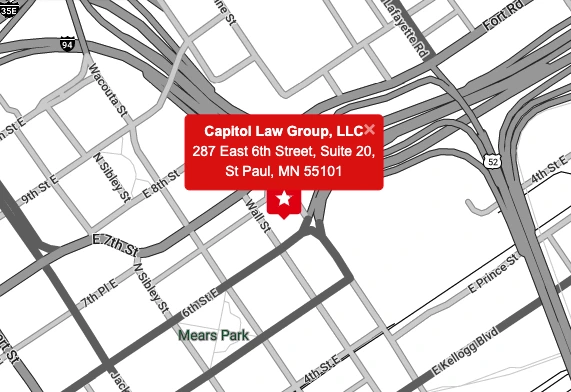How Do St. Paul Criminal Defense Attorneys Handle DWI-Drug Matters?

In terms of alcohol intoxication, Minnesota’s law is very straightforward. But in terms of drug impairment, Section 169A.20 is extremely complex. It is illegal to drive under the influence of “a controlled substance” or “an intoxicating substance [if] the person knows or has reason to know that the substance has the capacity to cause impairment.”
Controlled substances are mostly illegal drugs and prescription painkillers or antidepressants. A few over-the-counter drugs are controlled substances as well, if their only active ingredient is ephedrine or pseudoephedrine. These drugs are methamphetamine precursors.
The second part of this definition is much broader. Pretty much any pill in your medicine cabinet could fall into this category. Many of the beverages and foods in your refrigerator and pantry may have “intoxicating” qualities as well. California has a similar DWI drug law. In 2016, the state charged a man with driving under the influence of caffeine. Solano County prosecutors dropped those charges. But this man’s arrest highlights the aggressive law enforcement stance in these situations.
Given this legal and law enforcement environment, St. Paul criminal defense attorneys must be equally aggressive, especially since DWI is one of the most serious misdemeanors in Minnesota.
Basic Elements and Consequences
In addition to intoxication, which is basically the loss of normal physical or mental faculties, the DWI-drug law has some other elements, including:
- Operating the Vehicle: The car does not have to be in motion. Generally, if the defendant is in the front seat and the car is driveable, the defendant is “operating” the vehicle. This element may be an issue in some DWI collision cases in which no witness actually saw the defendant drive the car.
- Public Place: A shopping mall parking lot is not a public place, even if it has street names and traffic control devices. Such places are private property. For the same reason, an apartment complex parking lot is never a public place either. The curb in front of a private residence is in a grey area.
- Proper County: Lauderdale, North St. Paul, and a few other suburbs are partially in Ramsey County and partially in another county. If the state files the case in the wrong county, prosecutors can start over in the correct county, but they lose valuable time by doing so.
The direct consequences of a DWI-drug conviction usually include fines, court-supervised probation, and drivers’ license suspension. Many times, the indirect consequences are just as bad.
Increased auto insurance premiums are a good example. If you are convicted of DWI, you must obtain SR-22 insurance, and keep it for at least three years. This high-risk insurance often triples auto insurance rates.
Evidence in DWI-Drug Prosecutions
There is no Breathalyzer test for drugs, and police officers rarely extract blood samples in these cases. They must obtain search warrants to do so. Therefore, most DWI-drug prosecutions rest on circumstantial evidence. That’s good news for St. Paul criminal defense attorneys. The conviction rate chemical test cases is twice as high as the conviction rate in non-test cases.
Increasingly, many police departments use Drug Recognition Experts (DREs) in these cases as well. These police officers have some additional training in this area, so they can supposedly spot “drugged” drivers largely based on their physical appearance.
St. Paul Criminal Defense Attorneys and Response Strategies
The three approved Field Sobriety Tests usually form the core of the circumstantial evidence in DWI prosecutions. In general, these tests establish probable cause for intoxication, but beyond a reasonable doubt, which is the burden of proof at trial, is a much higher standard. So, St. Paul criminal defense attorneys can often debunk the FST results, as follows:
- Horizontal Gaze Nystagmus: Drug impairment causes involuntary pupil movements when subjects track moving objects with their eyeballs. However, a number of other things cause nystagmus as well.
- Walk and Turn: The walking-a-straight-line test is difficult to successfully complete whether the subject is intoxicated or not. Environmental conditions (e.g. walking an imaginary line instead of an actual line) make it even harder.
- One-Leg Stand: Officers often testify that the defendant “failed” this test due to technicalities, like holding the elevated leg at the wrong angle. Fortunately, the jury looks at the footage and decides who passed and who failed.
As for the DRE, St, Paul criminal defense attorneys often point out that these individuals rely on vague circumstantial evidence, such as bloodshot eyes and limp muscles, to reach their conclusions. Additionally, DRE conclusions are often self-fulfilling prophecies. When these officers arrive on the scene, they already know they are testing someone for drug use.
Reach Out to Dedicated Lawyers
DWI-Drug cases are usually complex versions of alcohol intoxication matters. For a free consultation with experienced St. Paul criminal defense attorneys, contact Capitol City Law Group, LLC. Go online now, call us at 651-705-8580, or stop by 287 6th St E, Suite 20, St Paul, MN 55101.




